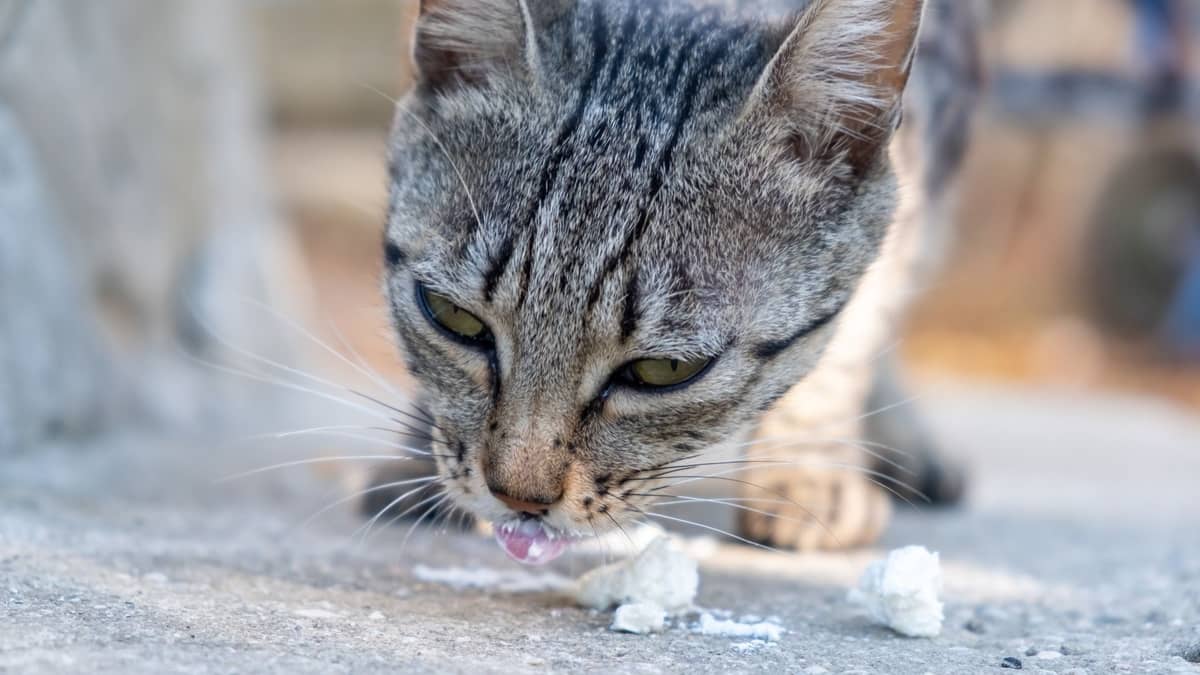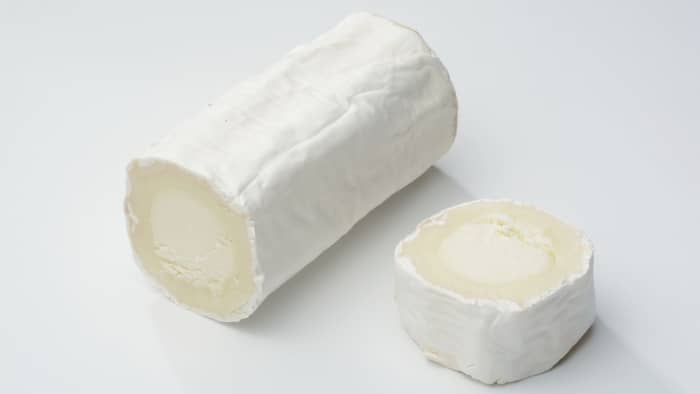Can cats eat goat cheese? This question bothered me for a while, and I knew I needed to find the answer!
While cats like eating cheese, I’ve always known that not all cheese is good for them. Many cause cats to experience diarrhea, constipation, or vomiting. I’ve given my cats goat milk before, but when I wanted to give them some goat cheese, I was unsure if another ingredient in it could cause any harm.
IMPORTANT: At stuffaboutcats.com, we regularly consult with licensed veterinarians and other industry experts. However, the information found on stuffaboutcats.com should not be viewed as veterinary advice. We do our best to help you better understand your cats, but the information on this blog is not a substitute for veterinary guidance.
So I set out to find the truth, and in this article, I’ll share it with you!
Can Cats Eat Goat Cheese?
Yes! In fact, goat cheese is the best cheese to offer your cat.
Cats don’t have the lactase enzymes needed to efficiently digest dairy products, so when you feed them dairy, it should be the type that digests quickly. Because goat cheese has the least lactose, it fits this box perfectly!
Do Cats Need Diary?
Cats love a little bit of milk every now and then, but the truth is, they don’t need it. Cats are carnivores, and dairy doesn’t form part of their typical diet.
If you want to include goat cheese in your cat’s diet, you should only serve it as an occasional treat.
The Benefits Of Goat Cheese For Cats
Goat cheese can improve the health of your cat in several ways. Not only will it add essential vitamins and minerals to their body, but it will also improve their bodily function. These are some reasons why you should include goat cheese in your cat’s diet:
Improves digestion and gut health
Goat milk contains less lactose than others, making it easier to digest. While most cheese can upset your cats’ tummy, goat cheese will quickly move through their digestive system, and because it also contains high levels of probiotics, it can help relieve constipation.
The same probiotics also improve immune system function, making your cat less vulnerable to illness.
High in calcium
Calcium is an essential nutrient for bone, organ, and teeth health, and goat cheese is loaded with it! If you give your cat goat cheese, you can help prevent many bone disorders like osteoporosis.
Prevents obesity
Many cats can become obese when they consume too much dairy. If your cat loves the taste of cheese, you should replace what they’re currently eating with goat cheese to reduce weight gain.
Goat cheese contains fatty acids that metabolize fast. This means that your cat will feel full after a smaller portion.
Packed with minerals and vitamins
Goat cheese is full of minerals and vitamins that your cat’s body will love! These include:
- Copper: Produces red blood cells and aids in iron absorption.
- Selenium: Aids in the breakdown of DNA-damaging peroxides to reduce the risk of cancer, cardiovascular disease, and thyroid disease development.
- Vitamin B2: Aids in the production and functioning of new cells.
It’s also high in calcium, magnesium, phosphorus, potassium, and zinc.
Goat Cheese Alternatives For Cats
Goat cheese really is the best choice for your cat, but if you can’t find any or your fuzzball doesn’t seem to like it, you can try one of these low-lactose alternatives:
- Cottage Cheese
- Feta Cheese
- Cream Cheese
- Cheddars
- Gouda
- Mozzarella
- Swiss Cheese
- String Cheese
- Parmesan
Vegan Cheese: The Truth
You may think that vegan cheese is safe for your cat, but unfortunately, it’s not. While it doesn’t contain any lactose, it’s filled with salt and fat content, which can be detrimental to your cat’s health.
Lactose Intolerance In Cats
It’s pretty easy to spot lactose intolerance in your cat after you’ve given them some goat cheese to eat. Watch out for these signs:
- Diarrhea or constipation
- Bloating and abdominal pain
- Excessive gas
- Dehydration or an increased thirst
- Dry gums
- Increased heart rate
The digestive-related signs should subside within a day, but if they don’t, a visit to your vet will help. If you notice any of the last three mentioned symptoms, you should immediately take your cat for a check-up.
Fun Ideas To Include Goat Cheese In Your Cat’s Diet
Here are some fun ways to give your cat cheese:
- If you have a cat tunnel, you can lay the cheese in it for your cat to sniff out.
- If you’re trying to teach your cat a trick or house train them, you can use goat cheese cubes as a treat.
- If your cat is a little unfit, you can place cheese cubes up high for them to search out.
Alternatively, you can grate some goat cheese and mix it with their dry or wet food, use it to add extra flavor to other foods like fried fish or homemade meatballs, or create a salad meal with cheese, some greens, and meat.
In Conclusion
Goat cheese is the best cheese to give to cats. Other cheeses are fine as well, but your cat’s risk of being intolerant to them is higher. If you want to add dairy to your cat’s diet, goat milk or cheese is your safest option.
You should still keep portion sizes small and only give goat cheese as a treat. It should never be so much that it replaces a meal. It’s essential for you to keep in mind that the more cheese you feed your cat, the higher their chance of developing an intolerance is.
Let me know in the comments when you include goat cheese in your cat’s diet. I’m sure yours will love it as much as mine does!
FAQs
Is goat milk good for cats?
Goat milk can form part of a healthy feline diet. It's high in protein and easily digested. You can serve it alone, mix it with dry or wet food, and even make frozen treats for your cat!
Is cheese toxic to cats?
Cheese isn't toxic to cats, but it can upset their digestive system.
What dairy products can cats eat?
While some cats can have a dairy intolerance, most are perfectly fine when eating dairy products in moderation. Some cat-approved dairy foods include:
Butter
Cheese
Ice cream
Yogurt
Can goat's milk cause diarrhea in cats?
Goat's milk contains lactose that can cause diarrhea in lactose-intolerant cats.

